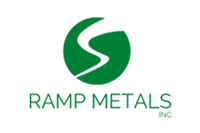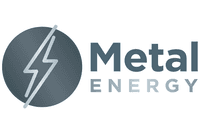Investors should start to pay special attention to companies located in nickel-rich countries, poised to successfully locate and process high-purity Class 1 nickel.
Popularity in electric vehicles globally has driven the industry to exponential heights in recent years. Some of the biggest car manufacturers in the world have already embraced the shift to electric, from Ford’s (NYSE:F) unveiling of the F-150 Lightning to the continued success of Tesla (NASDAQ:TSLA).
Regardless of where you stand with EV technology, it’s clear there’s been a paradigm shift towards greener alternatives to transportation and energy. By 2031, analysts expect this rapidly expanding market to have a compound annual growth rate of 26.8 percent, showing there’s ample room for growth.
So, what are driving these trends? Many acknowledge that a critical component of this strategic shift from traditional to electric vehicles is the availability and supply of nickel, a metal that accounts for over 40 kilograms per car battery. As the electric vehicle market grows, so too will the prospective nickel industry.
When investing in electric vehicles, investors cannot overlook the exceptional opportunities available to nickel miners from electric vehicle battery production.
Nickel in electric vehicles: Class 1 nickel
An electric vehicle battery consists of one or more electrochemical cells, which are composed of two electrodes, an anode and a cathode (and an electrolyte). Nickel-containing cathodes allow electric vehicle manufacturers to make their batteries lighter, smaller and provide higher energy density. This allows for the production of more efficient and powerful electric vehicles at a lower cost.
However, not all nickel is made the same.
Class 1 nickel, usually found in sulfide deposits, is a group of nickel products consisting of electrolytic nickel, powders and briquettes, as well as carbonyl nickel. Class 1 nickel has a much higher nickel content, over 99 percent, and is the only suitable class of nickel that can be used for electric vehicle batteries.
Nickel in electric vehicles: Where is Class 1 nickel going to come from?
Historically, Indonesia has been the largest producer of nickel in the world. However, on January 1st, 2020, the country implemented a ban on the exportation of nickel. This dramatic shutdown has put added pressure on other countries to fill this supply gap.
Fortunately, nickel mining in the West has the potential to meet these global demands. Canada, home to the Sudbury mining camp, one of the top nickel-producing deposits in the world, stands as one of the premier sources of Class 1 nickel.
This prolific mining camp has been operating for over 100 years and produces hundreds of tonnes of nickel and copper every year. Since its inception, this area has produced a total output of eight million tons of nickel and copper, over 3,200 tons of silver, 300 tons of platinum and 100 tons of gold. Based on today’s metal prices, more than 77 mines have produced an estimated C$330 billion worth of metal.
Nickel in electric vehicles: Major producers of Class 1 nickel in Canada
One company taking advantage of the growing demand and short supply for nickel in electric vehicle battery production is SPC Nickel (TSXV:SPC), a premier exploration company currently executing on highly prospective nickel-copper-platinum group mineralization projects. SPC Nickel has complete ownership of two advanced-stage projects: Aer-Kidd and Lockerby East. The company recently announced a drilling campaign at the highly prospective Janes property, their third location within the Sudbury mining camp.
SPC’s flagship project Aer-Kidd, located along the mineral-rich Worthington Offset Dyke, hosts several high-grade nickel-copper-PGM deposits and puts SPC Nickel directly between two world-class mines: Vale’s Totten Mine and KGHM’s Victoria deposit. Its other highly prospective Lockerby East project has indicated resources of 0.18 million tonnes at grades of 2.32 percent nickel and 0.87 percent copper.
Another company capitalizing on Ontario’s world-class nickel deposits is Class 1 Nickel & Technologies (CSE:NICO,OTCQB:NICLF). Through its 100 percent owned Alexo Dundonald project, the company has the ability to explore two past-producing high-grade nickel and copper mines. This flagship project sits 45 kilometers from Timmins, Ontario, a distinguished mining territory with processing plants available in the area.
The importance of nickel moving forward
Greener alternatives in transportation, power, energy and more continue to drive significant shifts in how the world runs and the choices companies make. Major players in the car industry stand at the forefront of this movement with dedicated efforts focused on environmental sustainability.
For example, General Motors (NYSE:GM) has committed to eliminating their gas-powered cars by 2035, with Uber (NYSE:UBER) and FedEx (NYSE:FDX) committing to be carbon neutral by 2040. Additionally, Jaguar has announced its cars will be powered by 100 percent electric energy by 2025.
From a nickel supply standpoint, an independent study paid for by the European Commission showed a looming supply gap of Class 1 nickel by 2027. The study stated that “increasing demand from the battery sector presents the nickel market with both downstream refining and upstream feedstock challenges.”
As of today, the expected demand for nickel use in electric vehicles could grow to over 1.3 million metric tons per year by 2030. Based on this, it’s clear why Tesla CEO Elon Musk famously said: “I’d just like to re-emphasize any mining companies out there, please mine more nickel. Wherever you are in the world, please mine more nickel and don’t wait for nickel to go back to some high point that you experienced some five years ago or whatever, go for efficiency.”
Investors can expect that this transition to an electrified clean energy economy will require a monumental draw on metals and minerals. The ability of nickel to allow for cheaper, smaller and more efficient batteries makes this metal one of the single most important components in battery fabrication and powering an increasingly electrified world.
Takeaway
Class 1 nickel is essential in the fabrication of next-generation electric vehicle batteries, which Industry experts expect to significantly impact the demand for this metal. With a reliable increase in demand and a potential supply crunch coming in upcoming years, investors should start to pay special attention to companies located in nickel-rich countries, poised to successfully locate and process this high purity Class 1 nickel.
This INNSpired article was written as part of an advertising campaign for a company that is no longer a client of INN. This INNSpired article provides information which was sourced by INN, written according to INN's editorial standards, in order to help investors learn more about the company. The company’s campaign fees paid for INN to create and update this INNSpired article. INN does not provide investment advice and the information on this profile should not be considered a recommendation to buy or sell any security. INN does not endorse or recommend the business, products, services or securities of any company profiled. If your company would benefit from being associated with INN's trusted news and education for investors, please contact us.


